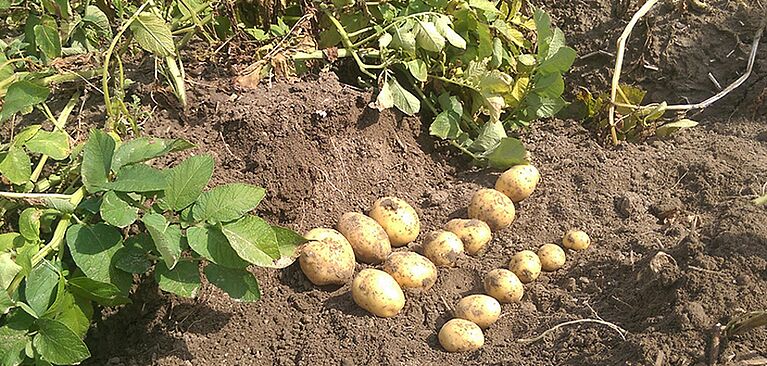
Aggregate potential impact of climate change and localization of ADAPT partners (© ESPON; Origin of data: ESPON, https://www.espo.eu; The interpretation of ESPON material does not necessarily reflect the opinion of the ESPON 2020 Monitoring Committee).
Potato is one of the most important food crops worldwide and a major constraint to secure yield is its sensitivity to environmental stresses. As cool climate crop potato is particularly sensitive to heat and drought stress, which have both a strong impact on tuber development. Tubers are also especially vulnerable to wet soils. Heat and drought stress can reduce yield by up to 70%, and induce secondary growth of tubers, which leads to further losses due to decline in tuber quality (FAOSTAT, 2017). Also flooding events can completely ruin the entire harvest within one or two days. ADAPT will identify the underlying molecular mechanisms of adaptation to combinations of heat/drought stress as well as to flooding stress in potato.
Stress acclimation requires metabolic reprogramming that is triggered by different signalling pathways. Whilst limited knowledge of combined stress signalling pathways is available in model plants such as Arabidopsis, this knowledge is almost completely lacking in potato. To understand the dynamics of complex signalling and response mechanisms we will utilise high throughput phenotyping (HTP) as well as novel reporter plants with sensors for live-imaging of cellular signalling responses.
